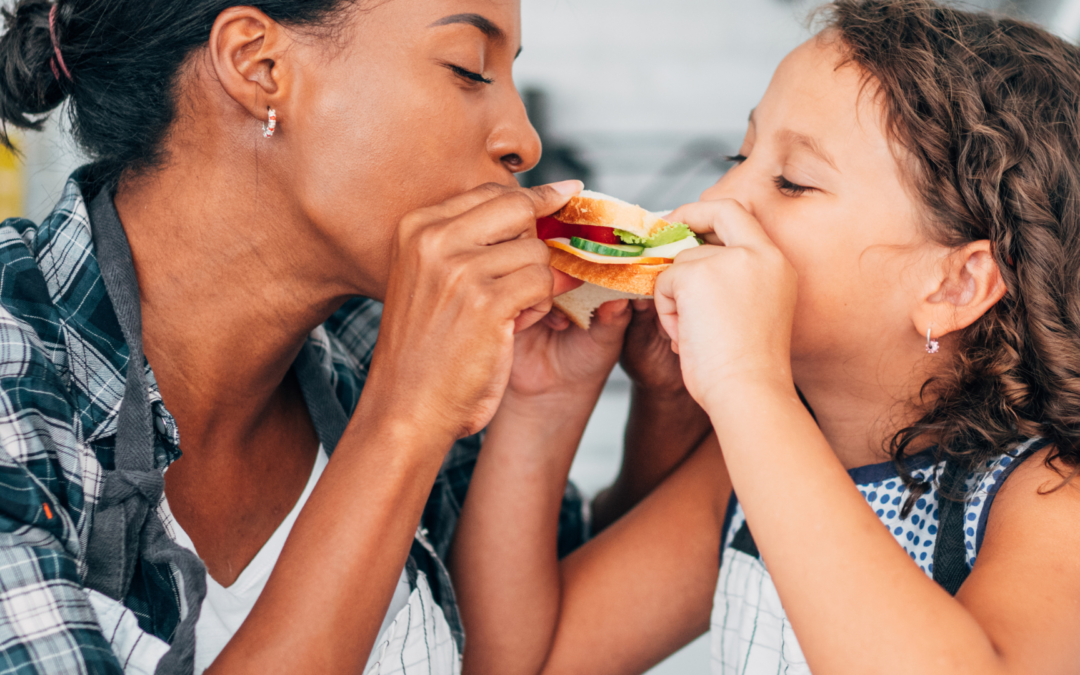Today is International Women’s Day and I wanted to share some thoughts about a topic which affects so many women; Emotional Eating. Emotional Eating is eating for emotional reasons, rather than for hunger or satisfaction. Despite it being a normal part of healthy eating (e.g., we eat to seek comfort in difficult times, to celebrate accomplishments), emotional eating gets a bad reputation because it can feel scary and “out of control”. In addition, in our current society which equates self-restraint with moral value when it comes to eating, eating for emotional purposes can feel like a failure. My opinion on the matter is that emotional eating is a coping mechanism and that it can be adaptive. It becomes, however, problematic if it’s the only way a person has to cope with adversity.
Last week, my colleague Jennifer Neale from NutritionIQ and I did an Instagram Live session where we discussed the topic of emotional eating and specifically about how it can impact mothers (check it out here). This got me thinking about the connection between emotional eating and the mental load of motherhood, or the invisible work that mothers are expected to do in managing the family and household. In juggling so many tasks, mothers are often encouraged to put aside their own needs for the needs of their loved ones. I frequently see women’s need for rest, for comfort, for safety, or for belonging get tossed to the side in the name of caring for family.
Enter emotional eating. Emotional eating is a way to meet some of these needs, at least in the short term. It’s quick. It’s easy. It’s common. But perhaps, instead of focusing on fixing emotional eating among mothers, we should really be focusing on reducing mothers’ mental load and supporting them in their self-care. Doing so could not only have important implications for all mothers, but also for all families. After all, if mothers aren’t able to get their needs met, they won’t be able to care for others. It’s that simple and it’s that important.
Want to learn more about emotional eating and motherhood? Check out NutritionIQ’s blog here.
Jennifer and I will be hosting a FREE Emotional Eating Workshop for Moms! If you are interested in joining, check it out here.
References:
Cook-Cottone, C. (2020). Embodiment and the treatment of eating disorders: The body as a resource in recovery. WW Norton & Company.
Dean, L., Churchill, B., & Ruppanner, L. (2022). The mental load: Building a deeper theoretical understanding of how cognitive and emotional labor overload women and mothers. Community, Work & Family, 25(1), 13-29.
Tribole, E., & Resch, E. (2020). Intuitive eating: A revolutionary anti-diet approach. St. Martin’s Essentials.
About the Author:

Dr. Melisa Arias-Valenzuela is a clinical psychologist licensed in Ontario and Quebec and is the founder of Uprise Psychology & Wellness. She works primarily with people struggling with eating disorders, body image concerns and perinatal mental health challenges. Dr. Melisa is a Qualified Instructor in Mindfulness Based Eating Awareness Training and a certified Perinatal Mental Health (PMH-C) therapist. She co-runs skills groups on Intuitive Eating for Moms called the Nourished Mama with registered dietician Jennifer Neale.
